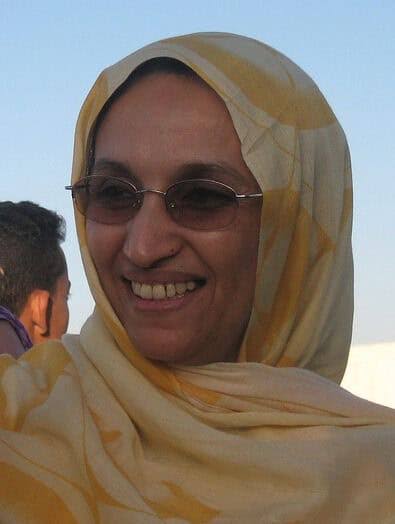
In a significant diplomatic development, prominent Saharawi human rights advocate Aminatou Haidar engaged in high-level discussions with Lady Ilia, the leading figure of Nigeria’s solidarity movement supporting the Saharawi cause, during a pivotal meeting at the Saharawi diplomatic mission in Abuja.
The Saturday morning conference centered on coordinating an upcoming week-long solidarity initiative dedicated to raising awareness about the Saharawi struggle. This landmark event will witness the formal establishment of Nigeria’s inaugural organized movement supporting the Saharawi people’s quest for self-determination.
Ms. Haidar, who serves as President of the Saharawi Collective of Human Rights Defenders (CODESA), participated in detailed planning discussions for activities that aim to amplify international support for Western Sahara’s independence movement.
Lady Ilia, who simultaneously holds the position of Deputy President within Nigeria’s influential Labor Council (NLC), conveyed her profound respect for the Saharawi people’s unwavering determination in their legitimate pursuit of independence.
The Nigerian labor leader reflected on her transformative experience visiting Saharawi refugee settlements the previous year, describing the lasting positive impact this journey had on both herself and the accompanying Nigerian delegation, which was led by NLC President Abdulwahid Omar.
She reaffirmed the Nigerian trade union movement’s unwavering commitment to supporting the Saharawi people’s fundamental right to self-determination and sovereign independence.
Aminatou Haidar, renowned for her role as a former prisoner of conscience and tireless human rights campaigner, expressed heartfelt gratitude to the Nigerian solidarity movement. She highlighted Nigeria’s historical role as a champion of African liberation movements, particularly referencing the nation’s steadfast support for South Africa’s anti-apartheid struggle.
The human rights defender emphasized the importance of continued international solidarity in advancing the Saharawi cause on the global stage.
The strategic meeting featured participation from key diplomatic and civil society figures, including Saharawi Ambassador to Nigeria Oubi Bouchraya Bachir and Malainin Lakhal, Secretary General of the Saharawi Journalists and Writers Union.
Nigerian representation included movement coordinator Nuhu Toro, highlighting the cross-cultural collaboration emerging between the two nations’ civil society organizations.
This diplomatic engagement represents a crucial step in expanding African solidarity networks supporting the Saharawi independence movement. The formation of Nigeria’s organized solidarity movement signals growing continental support for resolving the Western Sahara conflict through self-determination.
The meeting underscores the continuing relevance of pan-African solidarity in addressing ongoing decolonization challenges across the continent.
—
